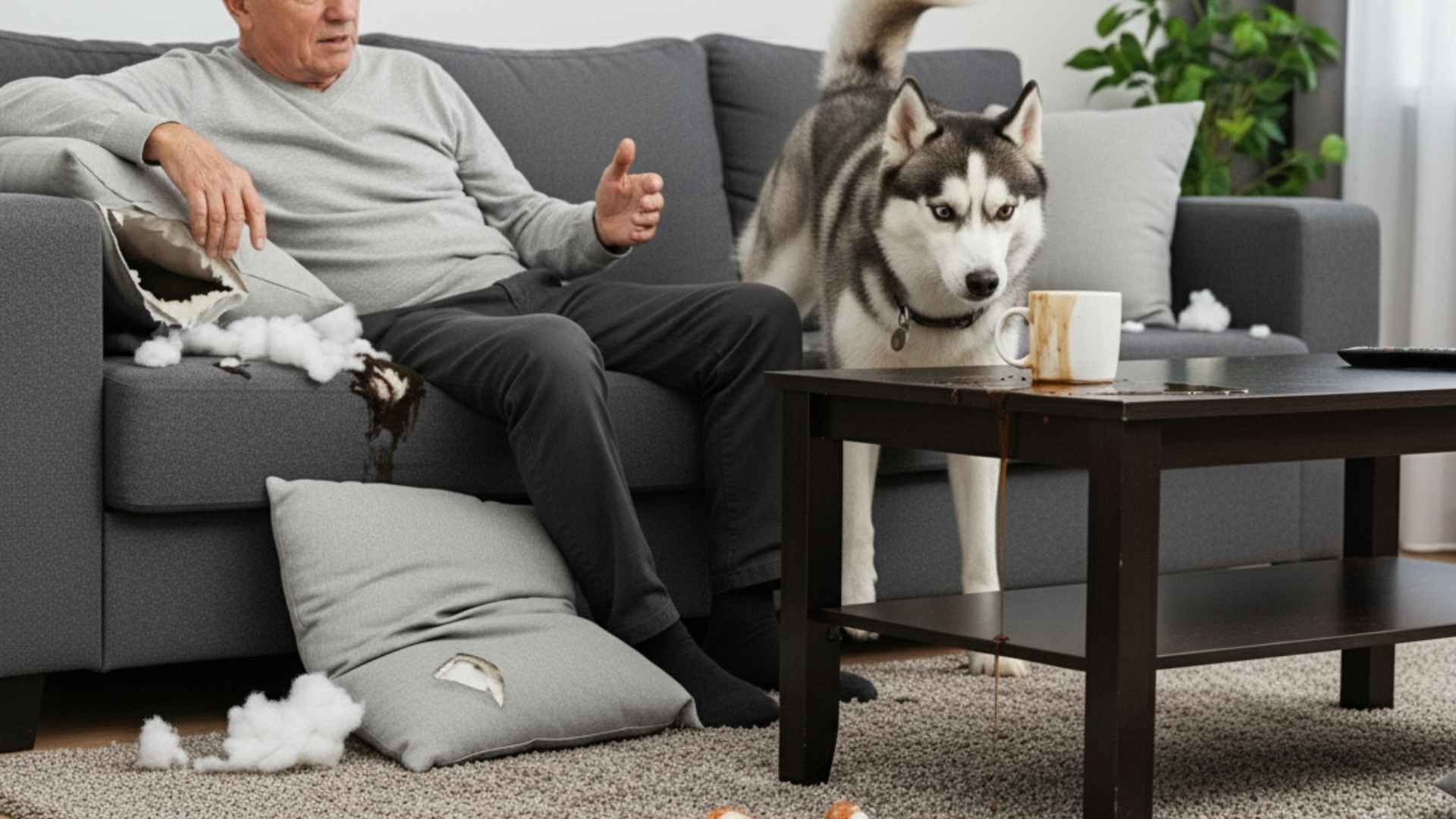A dog can be a senior’s best friend, bringing love, laughter, and even measurable health benefits. Studies show that spending time with dogs can lower blood pressure, reduce stress, and improve heart health, while also easing loneliness and boosting emotional well-being, as per Johns Hopkins Medicine.
A wagging tail can truly lift spirits and give seniors a renewed sense of purpose. But not all dogs are equally suited for older adults.
Some breeds demand high energy, rigorous exercise, or constant mental stimulation, which can be overwhelming. Large or powerful dogs can unintentionally cause falls or injuries, while territorial or stubborn breeds may be challenging to manage.
Understanding which breeds may not be ideal helps seniors avoid frustration, stress, and accidents—ensuring that the companionship of a dog remains joyful and safe.
In this blog, we’ll explore the different dog breeds seniors might want to avoid, highlighting their traits and challenges, so you can make an informed choice for a happy, healthy, and harmonious relationship with your furry friend.
Common Dog Breeds To Avoid With Seniors
1. German Shepherd
Characteristics
German Shepherds are among dogkind’s finest all-purpose workers. Large, agile, and muscular, they possess noble character and high intelligence. Loyal, confident, and courageous, they make devoted family pets and steadfast guardians.
As per AKC, experts highlight their defining traits: the ability to learn many commands, a brave yet calm temperament, and a strong instinct to protect loved ones. Their versatility and intelligence make them ideal companions for experienced owners who can meet their physical and mental needs.
Why is it Not Suitable for Seniors?
Despite their admirable qualities, German Shepherds can be overwhelming for senior dog owners. Their large size and strength make walks and handling challenging, increasing the risk of falls or injuries.
They are highly energetic, requiring at least two hours of daily exercise and mental stimulation to prevent restlessness or destructive behaviors. Grooming adds another layer of effort, as they shed heavily year-round.
Combined with their guarding instincts and activity demands, German Shepherds are better suited for active, experienced owners rather than seniors.
2. Rottweiler
Characteristics
Imagine a devoted protector with boundless strength and unwavering loyalty—that’s the Rottweiler. Powerful, muscular, and confident, these dogs possess a commanding presence and a sharp, intelligent mind.
Descended from ancient mastiffs, they are affectionate with family yet vigilant guardians. With proper socialization and guidance, Rottweilers are steady, devoted companions who thrive on meaningful interaction and structure.
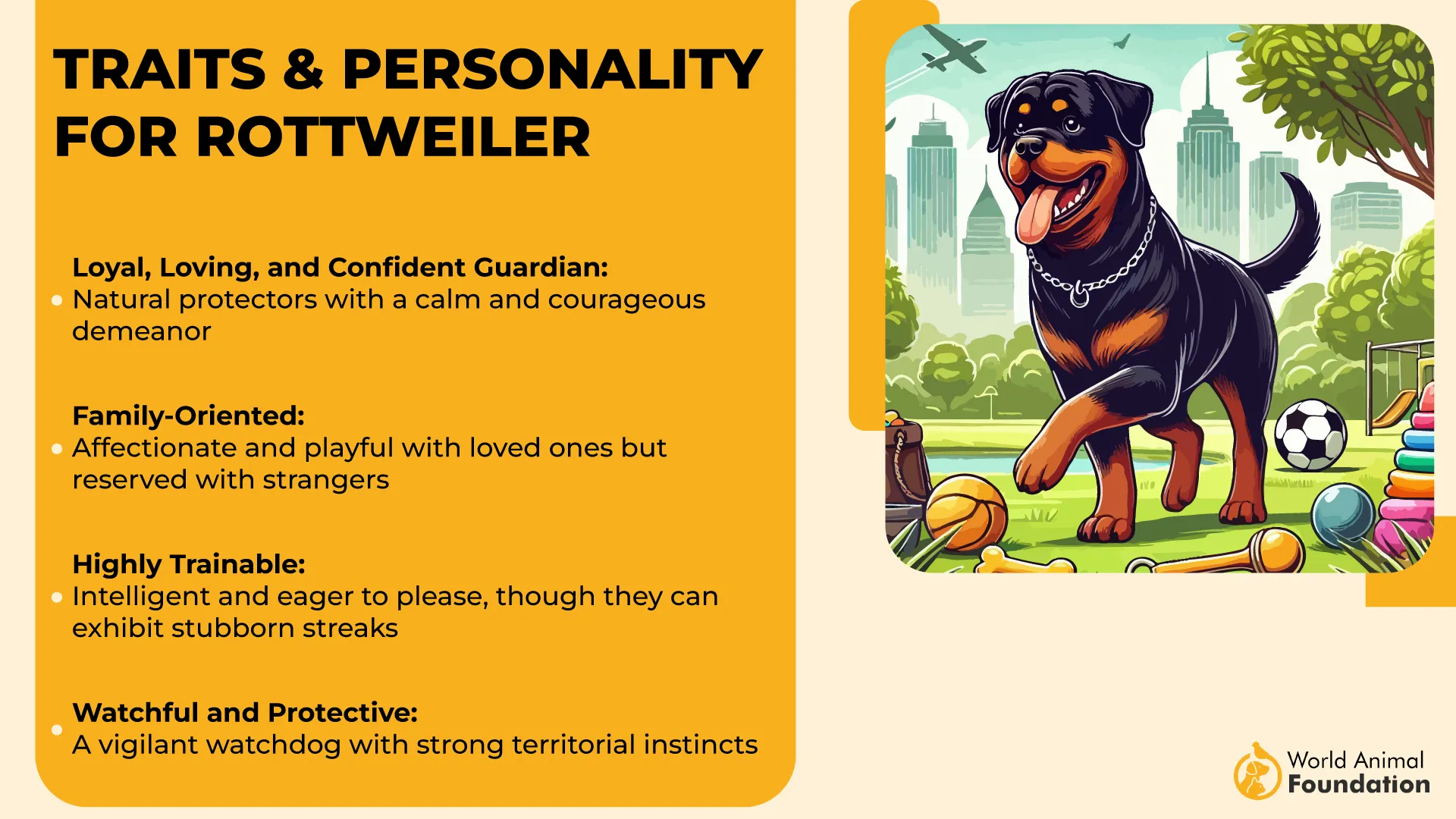
Why is it Not Suitable for Seniors?
Beyond their devotion, Rottweilers can be overwhelming for older adults. Their size and physical power make handling difficult, especially for those with limited mobility.
They need at least 60 minutes of daily exercise and mental engagement to stay content and avoid destructive or dominant behaviors. Health concerns, including obesity and other breed-specific issues, require attentive care and routine veterinary exams, as per PetMD.
Combined with their guarding instincts and energy levels, Rottweilers are generally better suited for experienced, active owners who can meet their demanding physical and mental needs.
3. Siberian Husky
Characteristics
Siberian Huskies are spirited, intelligent, and playful dogs with a striking wolf-like appearance. Outgoing and affectionate, they thrive on activity and adventure, forming strong bonds with their families.
Independent and clever, Huskies love mental challenges and physical exercise, making them ideal companions for active households. Their mischievous charm and loyalty make them engaging, but they are not natural watchdogs, preferring to greet visitors rather than guard the home.
Why is it Not Suitable for Seniors?
While loving and playful, Huskies require far more energy than most seniors can manage. Long daily runs, vigorous play, and mental stimulation are essential to keep them happy.
Independent thinkers, they may escape or dig if unsupervised, and their thick double coats shed heavily, demanding frequent grooming.
Combined with their stubborn streak, boundless energy, and prey instincts, Siberian Huskies are best suited for active, experienced owners who can meet their adventurous spirit and demanding lifestyle.
4. Border Collie
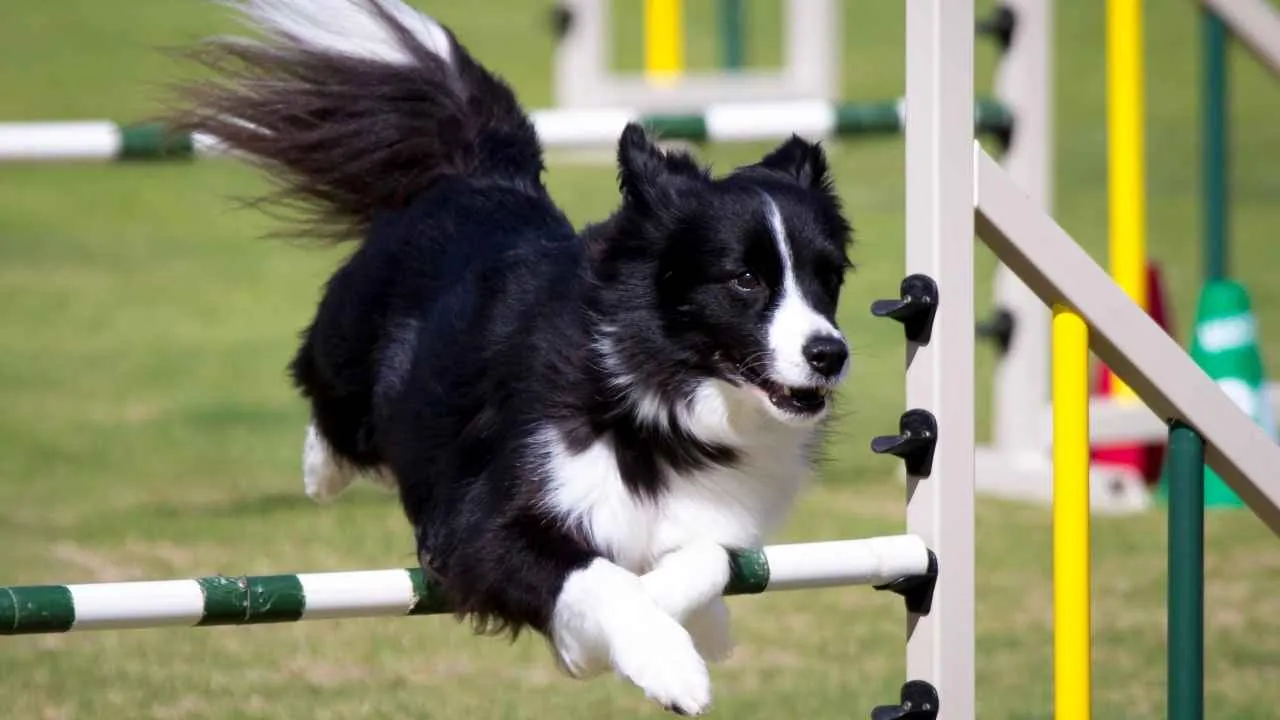
Characteristics
Imagine a dog brimming with intelligence and energy, always eager to learn and explore—that’s a Border Collie. Agile, highly trainable, and endlessly curious, they thrive on both mental and physical challenges.
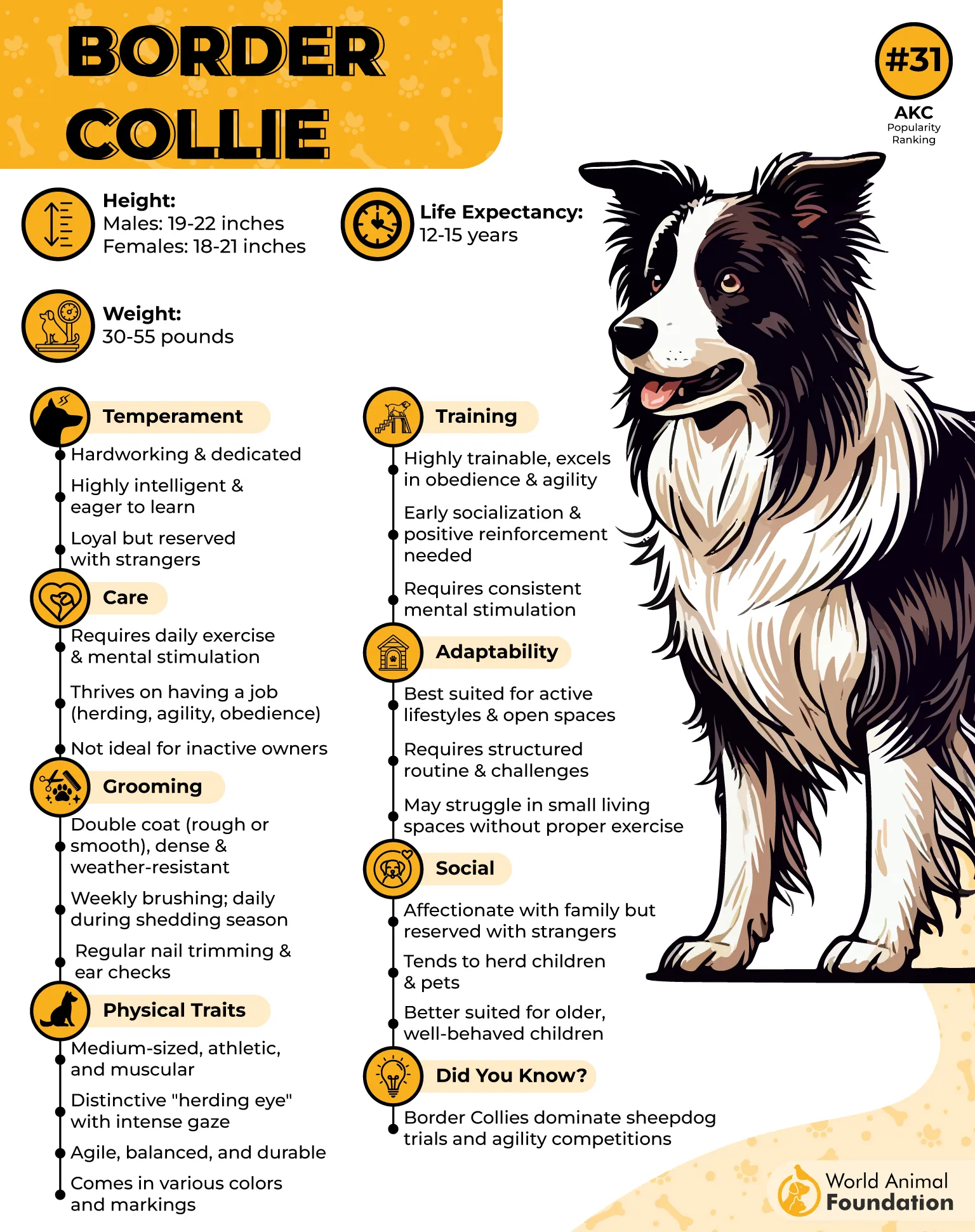
With strong herding instincts, they are loyal, playful, and constantly seeking meaningful activity. These dogs excel in agility, obedience, and sports, forming strong bonds with pet owners who can match their relentless energy and sharp minds.
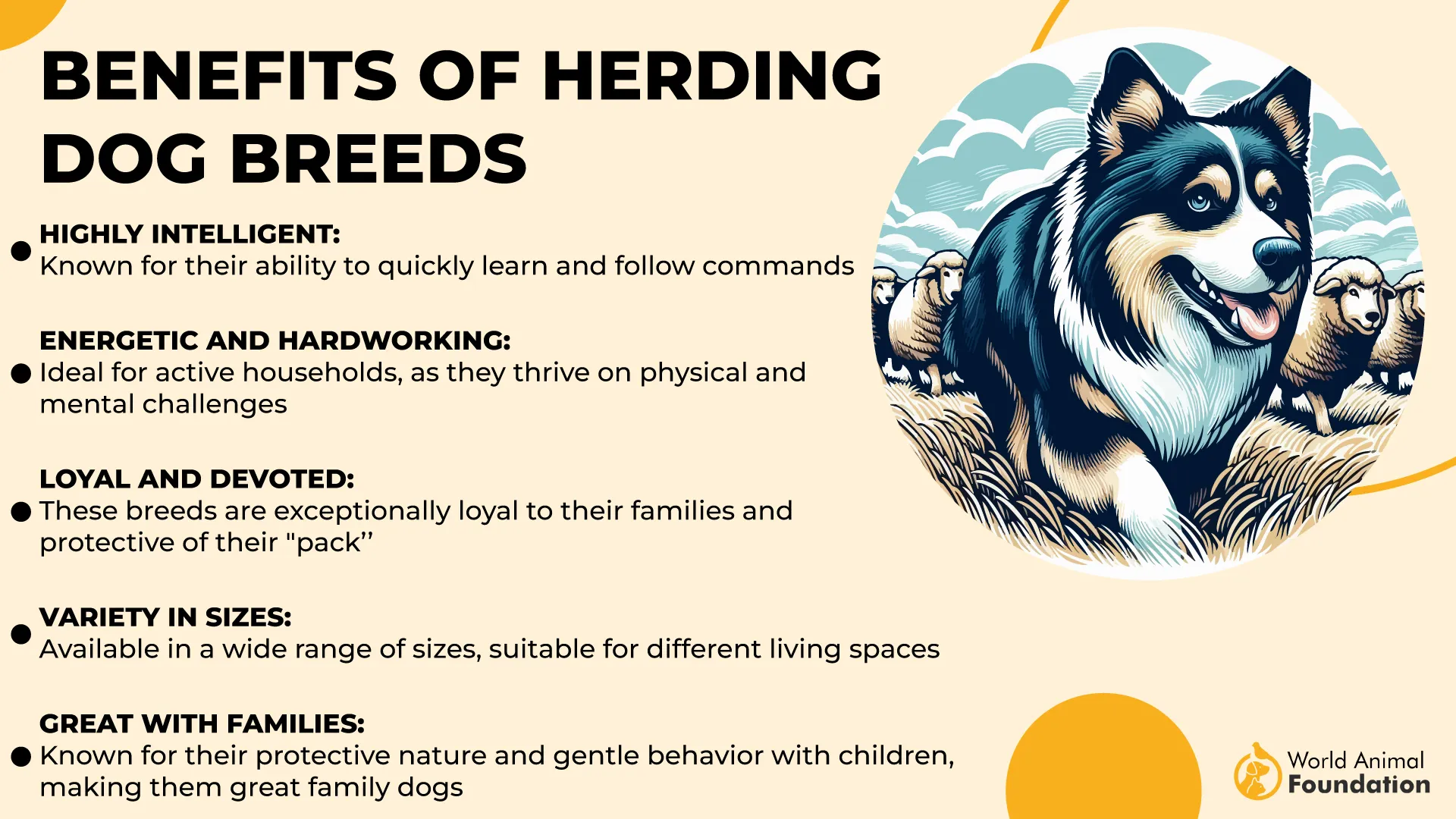
Why is it Not Suitable for Seniors?
Despite their charm and loyalty, Border Collies can be overwhelming for older adults. They need at least two hours of vigorous daily exercise and ongoing mental stimulation, or they may become restless or destructive.
Their instinct to herd can lead them to chase or nip at people or animals, creating risks in a senior’s home.
Even with moderate grooming needs, the combination of high energy, sharp intellect, and constant activity demands makes them difficult to manage for seniors seeking a calm, low-maintenance companion.
5. Dalmatian
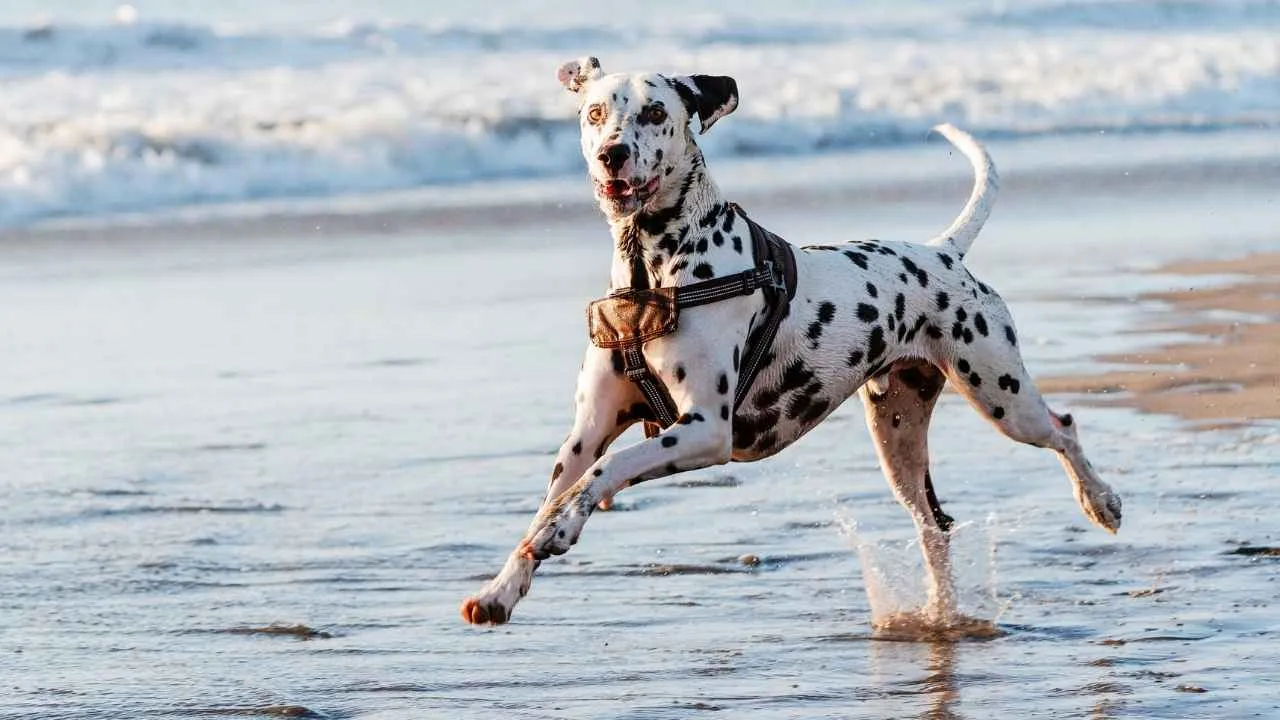
Characteristics
Picture a dog brimming with energy, curiosity, and playfulness—that’s a Dalmatian. Famous for their striking spotted coat, they love to run, explore, and engage with their surroundings.
Social and affectionate, Dalmatians thrive on activity and companionship, always seeking interaction and stimulation.
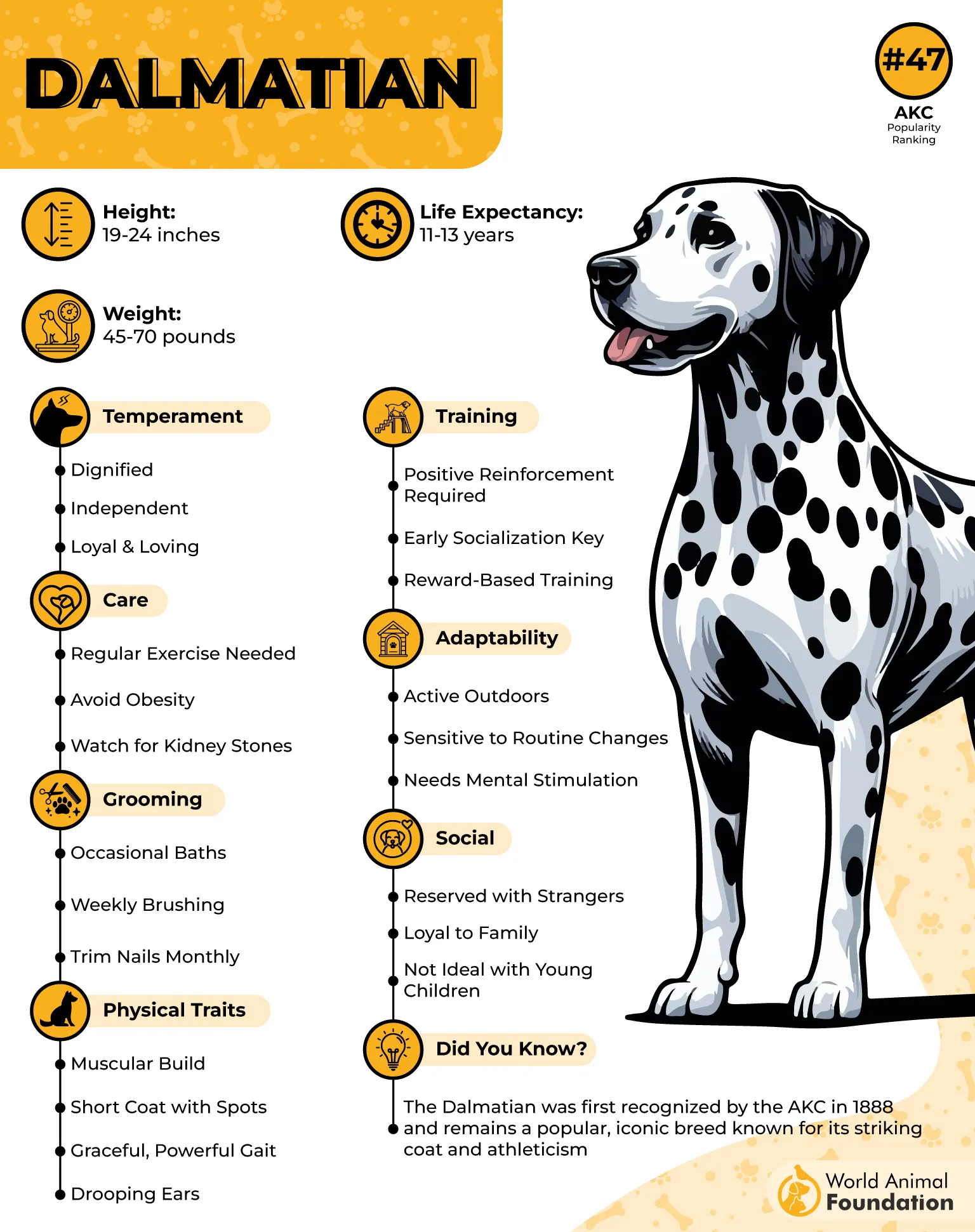
Why is it Not Suitable for Seniors?
Dalmatians’ high energy and constant need for exercise can be exhausting for older adults. They require frequent mental and physical engagement, or they may become bored, restless, or destructive.
Health concerns like urinary stones demand regular monitoring and care. Strong-willed and independent, they may test patience with stubborn behaviors, as per PDSA.
Their lively nature, combined with attention needs and potential health challenges, can create stress and safety risks, making them a difficult fit for seniors.
6. Jack Russell Terrier
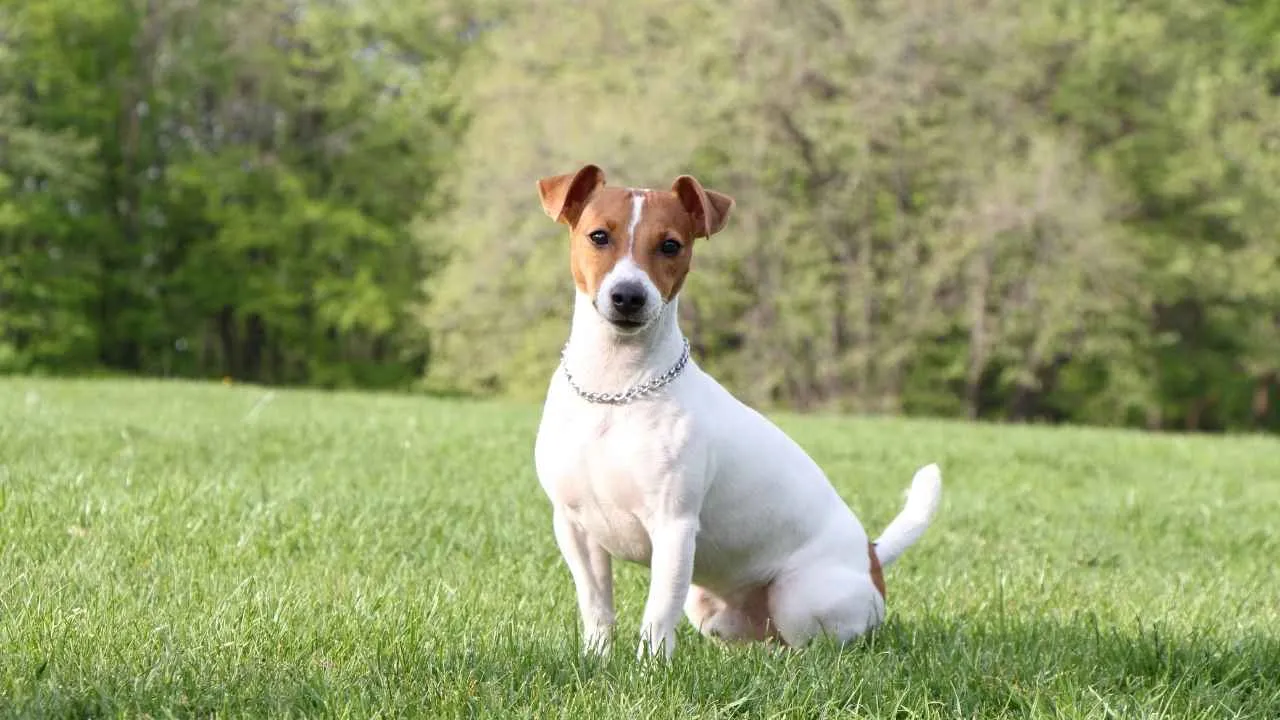
Characteristics
Picture a small dog with a heart twice its size, racing through life with curiosity, courage, and endless energy. Jack Russell Terriers are lively, fearless, and playful, always seeking adventure and mental engagement.
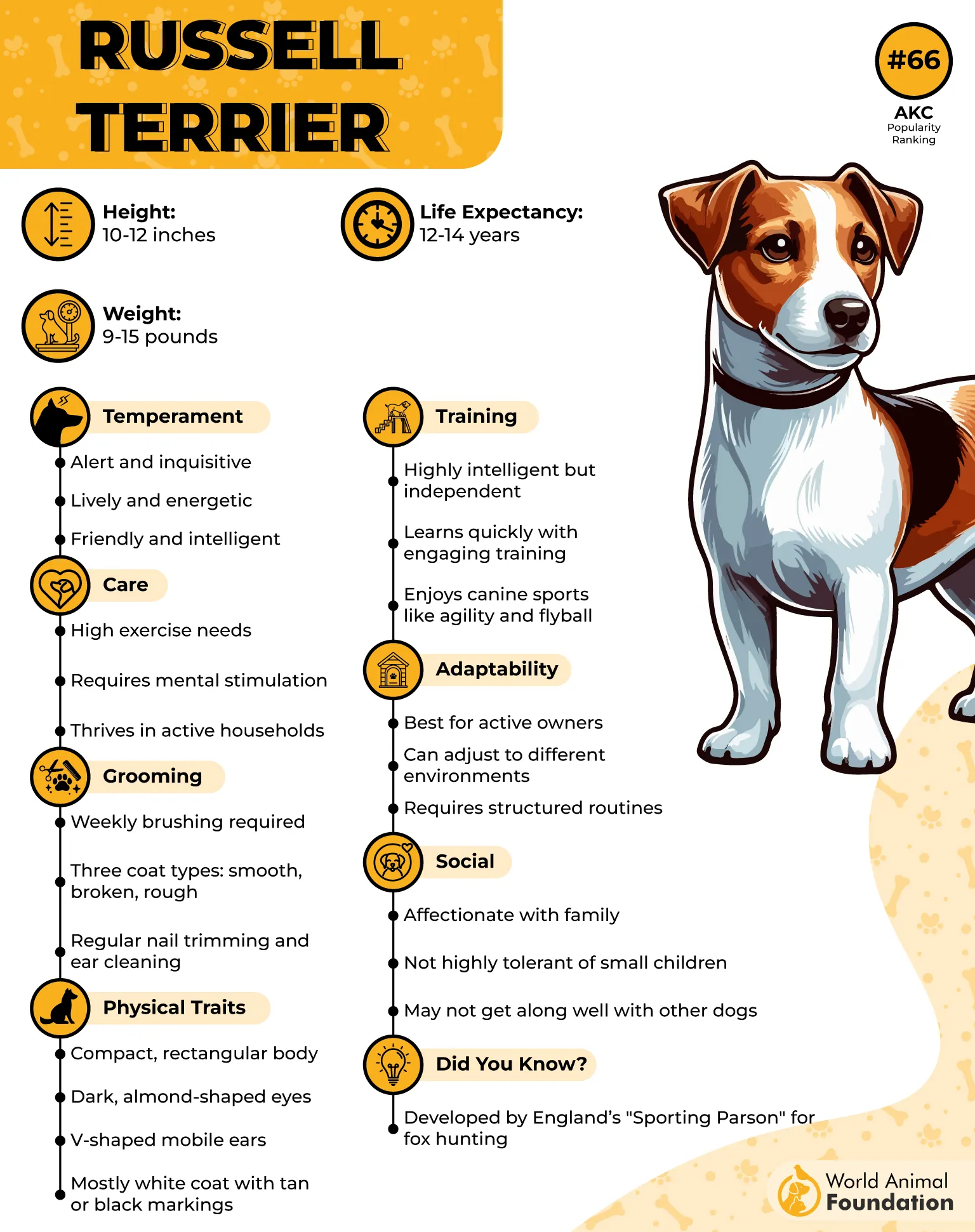
Their spirited personality brings laughter and excitement, turning ordinary moments into lively experiences. Social and affectionate, they form strong bonds with their families and thrive when given constant interaction and stimulation.
Their inquisitive nature means they are always exploring, climbing, and investigating their surroundings, often with surprising determination.
Why is it Not Suitable for Seniors?
Jack Russells’ constant energy and independent streak can be overwhelming for older adults. Without frequent exercise and mental engagement, they may become restless, mischievous, or destructive.
Their fearless nature can lead to chasing small animals or sudden dashes, creating safety concerns.
With their high activity levels and attention demands, Jack Russell Terriers may prove too challenging for seniors seeking a manageable companion.
7. Doberman Pinscher
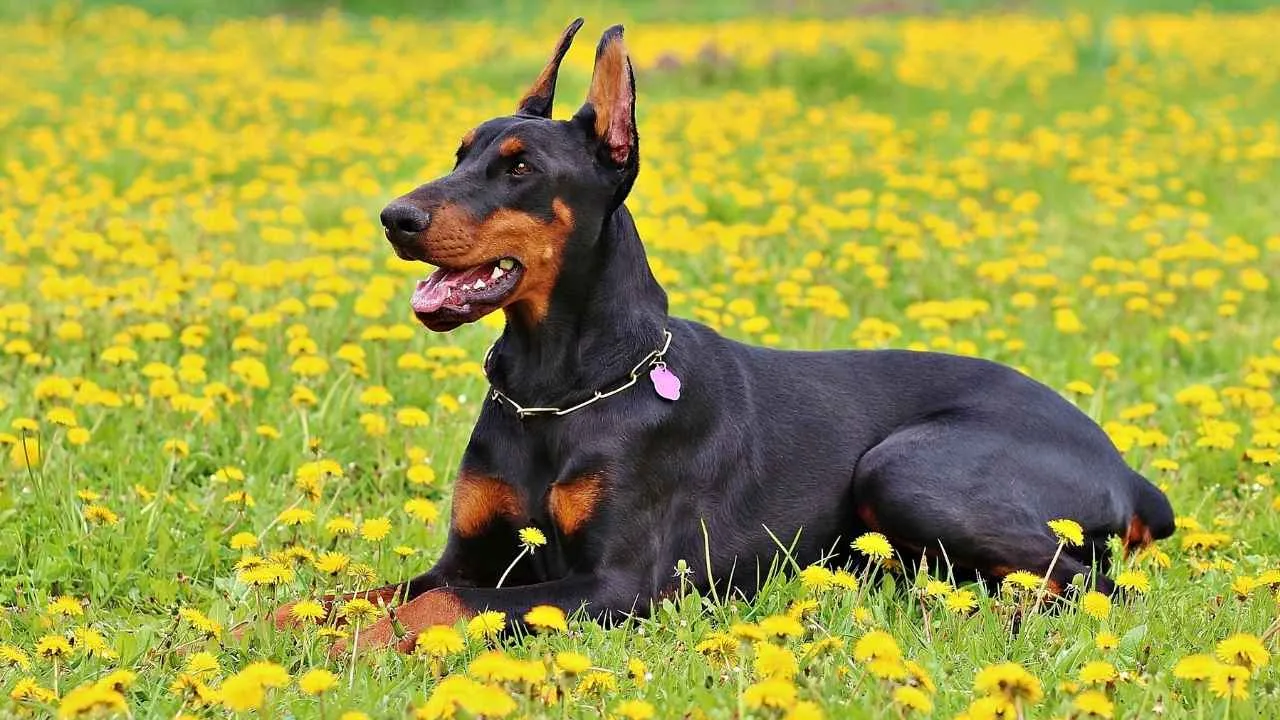
Characteristics
Imagine a pet dog that radiates elegance, loyalty, and unwavering alertness—that’s a Doberman Pinscher. Sleek, athletic, and devoted, they form strong bonds with their families and thrive on both mental and physical challenges.
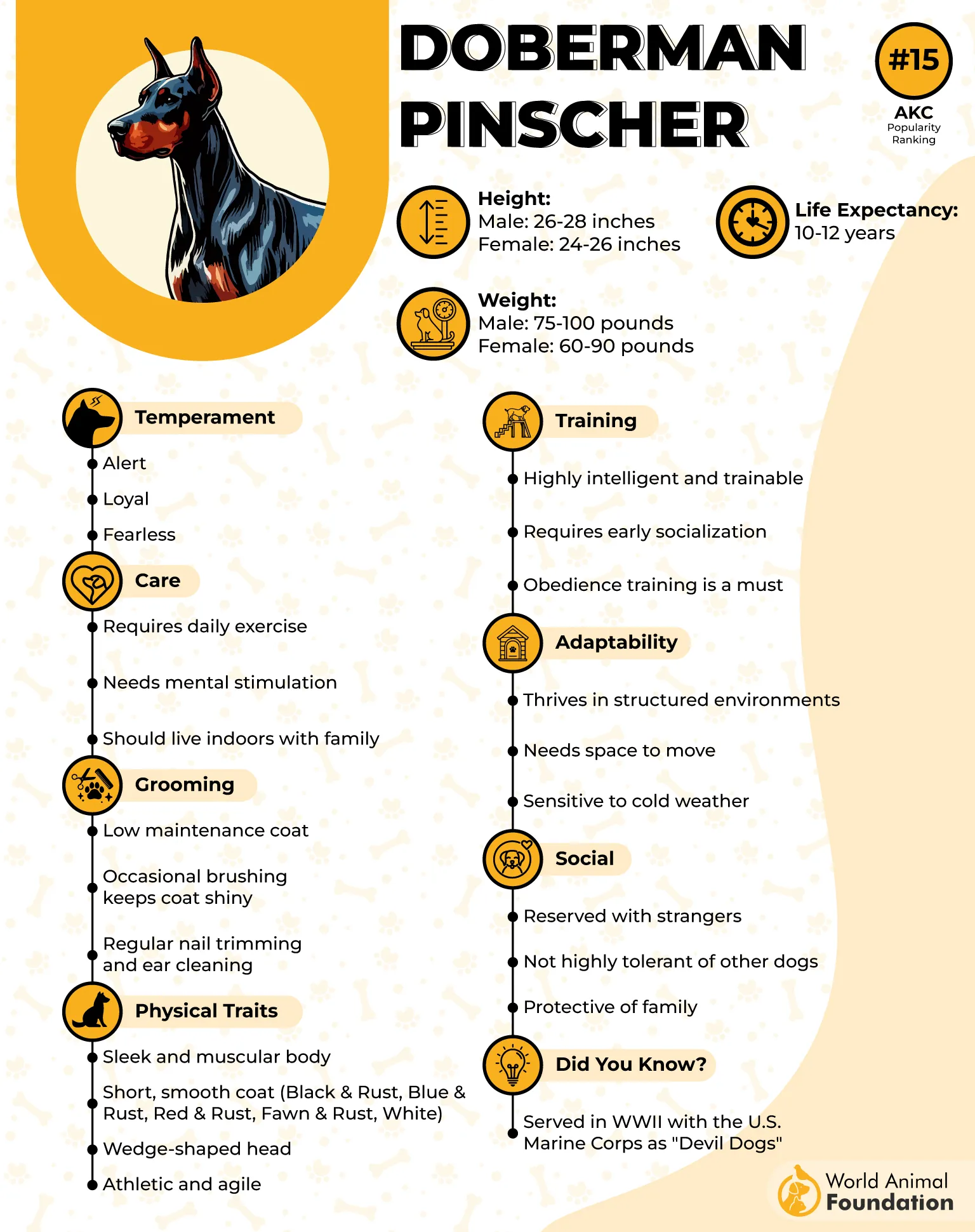
Energetic and playful, they enjoy jogging, retrieving, and problem-solving activities that keep their minds sharp. Their keen intelligence and responsiveness make them highly trainable and attentive companions.
Why is it Not Suitable for Seniors?
For older adults, a Doberman’s combination of strength, energy, and protective instincts can pose real challenges. They require daily exercise, mental stimulation, and careful supervision to prevent boredom or restlessness.
Their size and assertive nature can make walks and play difficult to manage. Additionally, health concerns like hip dysplasia need consistent monitoring.
For seniors seeking a peaceful companion, a Doberman’s high energy, vigilance, and need for active engagement may be too demanding, creating both physical strain and stress.
Conclusion
Choosing the best dog breed is crucial for seniors seeking companionship, safety, and manageable care. It’s important to be aware of the worst dog breeds for seniors before making a decision.
Breeds like German Shepherds, Rottweilers, and Huskies may provide loyalty and intelligence, but can overwhelm older adults with their energy, size, or proper training demands.
Understanding which breeds to avoid allows elderly owners to select calm, low-maintenance dogs that suit their lifestyle, ensuring both safety and happiness. Always research, consult veterinarians, and consider your abilities before bringing a dog home.


